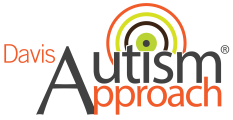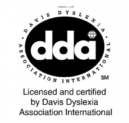
Inconsiderate. Rude. Lacking. Loud. Busy. Frustrating. Impossible. But smart…
How many other negative words can and have been used to describe an individual that struggles with attention and focus? Have these words been said about you or maybe someone you love? Have you sat in a meeting with a teacher and had them strongly insinuate that your child has ADD/ADHD and that you should possibly consider medicating your child? “Your child is smart but…” It’s the statement every parent dreads to hear.
Here is Ethan’s story:
First grade, first-semester parent-teacher conference Ethan’s parents are told that Ethan has difficulty staying on task and rarely finishes his assignments. They are told that Ethan is a bright boy but spends too much time daydreaming, fidgeting, and won’t stay in his seat. With the teacher’s help, they agree to try “self-regulation” tools in the classroom, things that will hopefully encourage and help Ethan in the classroom. A ball to sit on, oversized rubber bands around his desk to bounce his feet on, a place to stand and do his work and of course a fidget spinner. Weekly reports from the teacher are not positive. Ethan’s parents try being firm and even implement consequences for unfinished work in class soon but Ethan begins to complain about school and often says he is sick to get out of going to school at all.
End of first grade there is a meeting called with Ethan’s parents, his teacher as well as administration. Ethan’s parents are highly encouraged to seek a medical opinion as to why Ethan is unable to sit still, focus and complete his daily work. It is summer and they decide to wait maybe, Ethan will mature over the summer.
Second grade, first-semester conference, new teacher the same story. “Your son is smart but…” Although both parents agree that under no circumstances will they medicate Ethan the school still pushes in the direction for a medical opinion. Ethan’s parents give in and seek the opinions of a pediatrician, an OT and an audiologist. All three had a different “diagnosis” and “solution” for them to try. Ethan’s parents are both frustrated and confused. Ethan has become sad, a bit withdrawn and often says things like, “I hate myself!” and “I just can’t do it!”
Let’s imagine for a minute that we can see inside Ethan’s brain. Here is what we might find. Ethan is a three-dimensional thinker. His brain works much faster than those who don’t have his thinking style. Ethan disorients for entertainment and sometimes comfort. What does that mean? What goes on in Ethan’s brain is WAY more exciting than what goes on outside of it. One second he can be fighting dragons, and the next second he is flying a spaceship to Mars. We all have the ability to disorient and chances are we all do so at least once today. The difference between us and someone like Ethan is that we have the ability to control our disorientation. We understand that there are times when we must pay attention and not “daydream”. Somewhere along the way, Ethan missed that skill. And because Ethan spent more time disoriented than not he missed some important life concepts during his developmental years. So Ethan is not inconsiderate, rude, lacking, loud, busy, frustrating or impossible on purpose, he just truly doesn’t understand the rules of the world.
Is medication the answer?
It is not easy making decisions about medication for attention deficit hyperactivity disorder, but doing your homework helps. The first thing to understand is what medications for ADHD can and can’t do. ADHD medication may help improve the ability to concentrate, control impulses, plan ahead, and follow through with tasks. However, it isn’t a magic pill that will fix all of your child’s problems. Even when the medication is working, a child with ADHD might still struggle with forgetfulness, emotional problems, and social awkwardness, or an adult with disorganization, distractibility, and relationship difficulties. Medication can’t “cure” ADHD”. It can relieve symptoms while it’s being taken, but once medication stops, those symptoms come back. www.helpguide.org ADHD Medications Are ADHD Drugs Right for You or Your Child.
Drug-free option
The Davis Attention Mastery program is a drug-free approach teaching specific tools for self-regulating attention, focus, and energy level. These tools enable children and adults to work and study without reliance on medications commonly prescribed for ADHD.
During the Davis Attention Mastery program, a client is first taught how to turn off disorientation at will. Once the client is able to do this they can then begin “filling in” those missing pieces, the life concepts that they are missing. The program does this using the natural strengths and talents of the individual’s personal thinking and learning style. This is done by modeling the concepts in clay, mastering the concept in an oriented state and then exploring each concept in a real-world setting. Mastery of the life concepts along with self-regulation tools for energy and focus empower the individual with the tools that they can use for life-long learning.
When Ethan arrived at Rio Grande Learning Solutions for his initial assessment he was a bit standoffish but opened up enough to share with me that he would like, “to finish my work and not get in trouble at school.” With that motivation, I was able to lead Ethan through the Davis Attention Mastery program with great success! During the week-long program Ethan learned how to turn off the disorientation and then by using the Davis Symbol Mastery we addressed those “rules of the world” I mentioned earlier. Ethan also learned how to self-regulate his energy as well as match his energy to those around him, something that is valuable and much appreciated by parents, teachers, and peers. Watching Ethan discover his power over the very things that continually caused others to be upset with him was a joy!
During our week together I watched Ethan’s confidence grow as he began to see that he could control his focus and attention. The more we practiced the easier it was! One of my favorite moments with Ethan was while he was working on a jigsaw puzzle; a step in learning to create order; he said to me, “My mind isn’t going crazy! I am able to concentrate on this puzzle even though I’d rather be playing with your dog!” Ethan was empowered knowing that he was in control of his focus and attention. Mom and dad later reported that it was as if Ethan had “woken up”. “Ethan helps with bringing in the groceries, engages us in conversation and just seems more present.” There were things that Ethan was doing at home that mom and dad had not even related to being in the same category as what was going on at school. Ethan is now in middle school, has all A’s and B’s and captain of the Chess Club. In a recent follow-up, Ethan’s mom was choked up, “We are so happy that Ethan has been able to have success in school as well as with peer relationships.”
Ethan’s story is not very different from the stories I hear from other parents on a daily basis. One thing I like to tell each of these parents is that no matter how you choose to help your child know that you are not alone and no matter what make sure that your child knows that the way their brain works is indeed a gift and not a problem. Find your child’s strengths and help them find ways to excel there! There are many very successful individuals who are successful BECAUSE of their ADHD or Dyslexia. The thinking styles that these individuals possess give them ways to look at the bigger picture, solve problems and create in a way 2-dimensional thinkers cannot.



